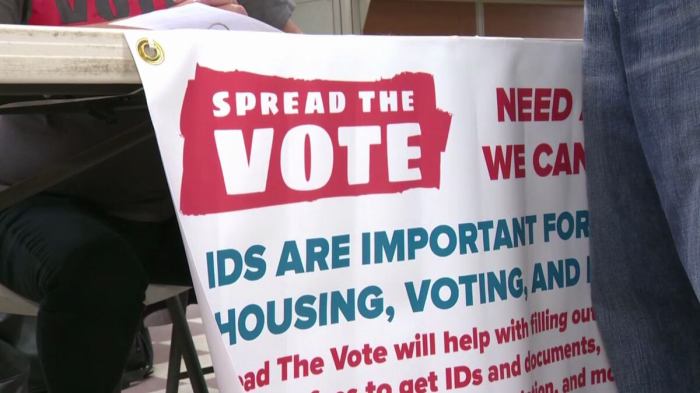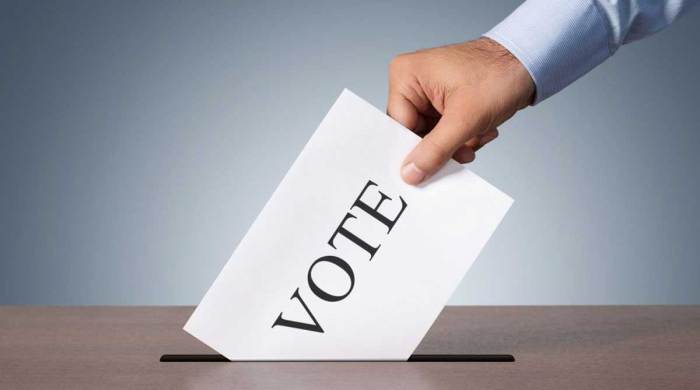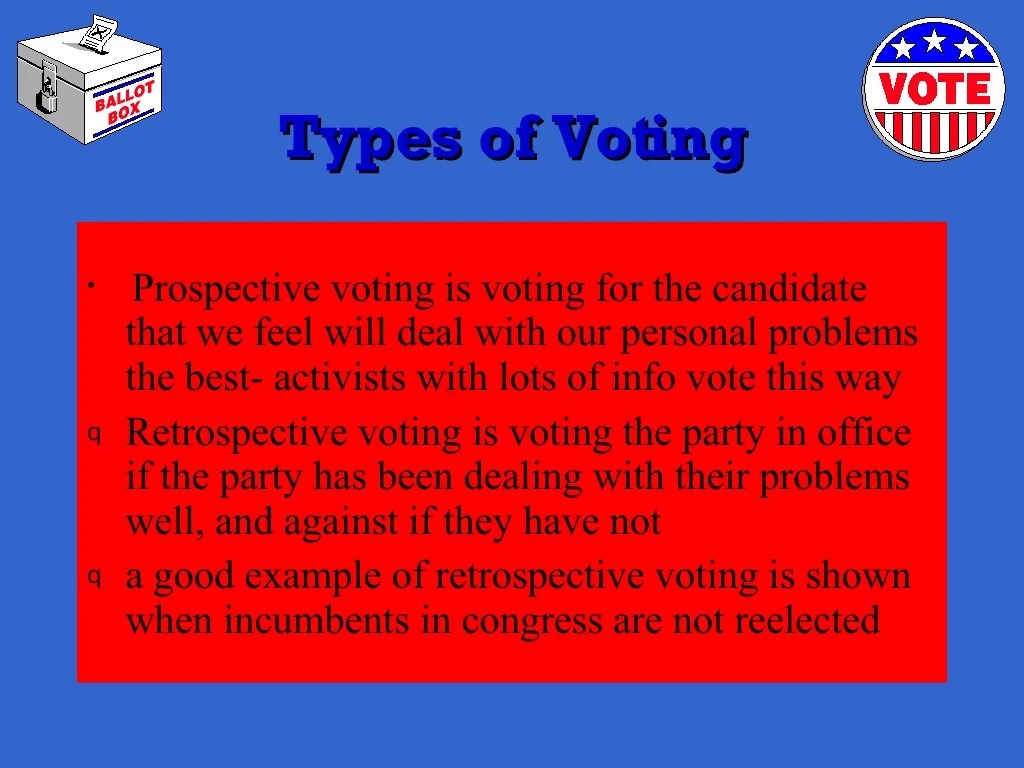Prospective voting is characterized by its focus on future outcomes, as opposed to retrospective voting, which emphasizes past performance. This distinction has significant implications for the motivations, methods, and applications of prospective voting, shaping its potential impact on society.
Prospective voting differs from retrospective voting in that it asks voters to consider the potential consequences of their choices before casting their ballots. This forward-looking approach aims to promote long-term thinking and encourage voters to make decisions based on their expectations of the future rather than their evaluations of the past.
Characteristics of Prospective Voting

Prospective voting is a system of voting in which voters cast their ballots before the outcome of an election is known. This differs from retrospective voting, where voters cast their ballots after the outcome is known.
The motivations behind prospective voting include the desire to reduce the influence of incumbency, to increase voter turnout, and to improve the quality of decision-making.
Methods of Prospective Voting, Prospective voting is characterized by
There are various methods used in prospective voting, each with its own advantages and disadvantages. Some common methods include:
- Approval voting:Voters can vote for as many candidates as they want, and the candidate with the most votes wins.
- Ranked-choice voting:Voters rank the candidates in order of preference, and the candidate with the most first-place votes wins.
- Borda count:Voters assign points to the candidates, and the candidate with the most points wins.
Applications of Prospective Voting
Prospective voting can be applied in a variety of settings, including:
- Elections:Prospective voting can be used to elect public officials, such as presidents, governors, and members of parliament.
- Referendums:Prospective voting can be used to vote on ballot measures, such as tax increases or changes to the constitution.
- Business decisions:Prospective voting can be used to make decisions within businesses, such as selecting a new CEO or approving a new product launch.
Impact of Prospective Voting on Society
Prospective voting has the potential to have a significant impact on society. It can:
- Reduce the influence of incumbency:Prospective voting can make it more difficult for incumbents to win re-election, which can lead to a more competitive and responsive political system.
- Increase voter turnout:Prospective voting can make it easier for people to vote, which can lead to increased voter turnout.
- Improve the quality of decision-making:Prospective voting can lead to better decisions being made, as voters are able to consider the long-term consequences of their votes.
Answers to Common Questions: Prospective Voting Is Characterized By
What are the key characteristics of prospective voting?
Prospective voting is characterized by its focus on future outcomes, its forward-looking approach, and its emphasis on voter expectations.
How does prospective voting differ from retrospective voting?
Prospective voting asks voters to consider the potential consequences of their choices before casting their ballots, while retrospective voting emphasizes past performance.
What are the potential benefits of prospective voting?
Prospective voting can promote long-term thinking, encourage informed decision-making, and enhance public policy by focusing on future outcomes.


